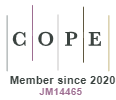Post-positivism and its relation with the principle of objective good faith in the formation of legal thought
DOI:
https://doi.org/10.5585/rtj.v8i1.12818Keywords:
Post-Positivism, Good Faith Objective, Positivism, Jusnaturalismo, Principles.Abstract
This paper aims the analysis of post-positivism, its main characteristics and the historical moment of its formation, regarding the way it relates to principles and, to what extent, the use of principles contributed to a new path in the formation of current legal thinking. In addition to the main study, through a historical research, it is necessary to make an approach of the two main currents that precede such jusphilosophical current: the jusnaturalism and the positivism, passing through its description and main characteristics, with the intention to contextualize and to justify the formation of the post- positivism. The analysis of the principles is also imperative, due to its increasing importance, with a prominent focus, due to its contribution in the formation of this new chain of legal thought since it serves as an element of hermeneutics to overcome conflicts and subsumption of the rule to the concrete case, going through the question of the general clauses and the indeterminate concepts contained in the statute.
Downloads
References
AGUIAR JÚNIOR, Ruy Rosado de. Cláusulas abusivas no Código do Consumidor. In: MARQUES, Cláudia Lima (coord.). Estudos sobre a proteção do consumidor no Brasil e no Mercosul. Porto Alegre: Livraria do Advogado, 1994.
BOBBIO, Norberto et al. Dicionário de Política. Volume I. Brasília: Editora Brasília, 1998.
BARROSO, Luís Roberto. A nova interpretação constitucional: ponderação, direitos fundamentais e relações privadas / Luís Roberto Barroso (organizador). 3 ed. Rio de Janeiro: Renovar, 2008.
BARROSO, Luís Roberto; BARCELLOS, Ana Paula. O Começo da História. A Nova Interpretação Constitucional e o Papel dos Princípios no Direito Brasileiro. BARROSO, Luís Roberto (coord.). A Nova Interpretação Constitucional: ponderação, direitos fundamentais e relações privadas. Rio de Janeiro: Renovar, 2003.
BONAVIDES. Paulo. Curso de Direito Constitucional. ed. 24. Ed. Malheiros. São Paulo: 2009.
BRASIL. Código Civil. Disponível em: <http://www.planalto.gov.br/CCivil_03/leis/2002/L10406.htm>. Acesso em: 7 mar.2018.
DELGADO, Maurício Godinho. Curso de direito do trabalho. 6 ed. São Paulo: LTr, 2007.
DINIZ, Maria Helena. Dicionário Jurídico. 3. ed. São Paulo: Saraiva, 2008. v. 2.
DWORKIN, Ronald. O Império do Direito. São Paulo: Martins Fontes, 2003.
______. Levando os Direitos a sério. Tradução de Nelson Boeira. São Paulo: Martins Fontes, 2002.
MARTINS-COSTA, Judith. A boa-fé no direito privado. São Paulo: RT, 2000.
SILVA, José Antônio Ribeiro de Oliveira. Magistratura e temas fundamentais do direito.1 ed. São Paulo: LTR, 2011.
KELSEN, Hans. Teoria Pura do Direito. São Paulo: Martins Fontes, 2003.
SOUZA NETO, Cláudio Pereira de; SARMENTO, Daniel. Direito constitucional: teoria, história e métodos de trabalho. Belo Horizonte: Fórum, 2012.
VALE, André Rufino do. Aspectos do neoconstitucionalismo. Revista Brasileira de Direito Constitucional – RBDC n. 09 – jan./jun. 2007.
WALD, Arnoldo. O novo Código Civil e o solidarismo contratual. Revista de direito bancário, do mercado de capitais e da arbitragem. São Paulo: Revista dos Tribunais. a.6, n.21, p.14-47, jul - set. 2003.
Downloads
Published
How to Cite
Issue
Section
License
Copyright (c) 2019 Luiz Eduardo Gunther, Eduardo Milleó Baracat, Rodrigo Thomazinho Comar

This work is licensed under a Creative Commons Attribution-NonCommercial-ShareAlike 4.0 International License.






